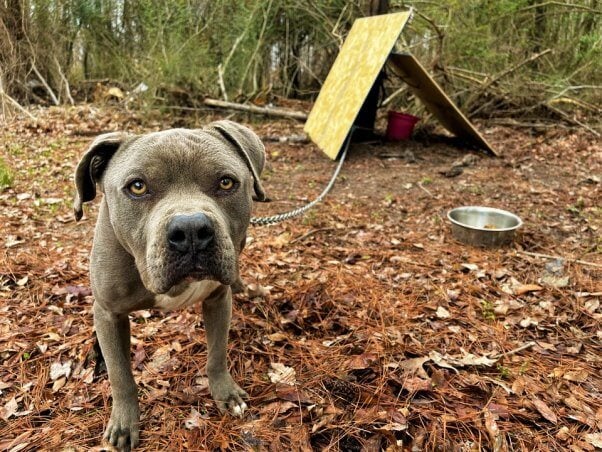6 Steps to Help Chained Dogs in All Weather
Dogs left outside without proper care or shelter can suffer from dehydration and hypothermia—and in winter, they can get frostbite or even freeze to death. Dogs should never be left outside, but when they’re outside and deprived of access to water or shelter, the situation is an emergency. Their well-being, if not their life, could depend on you to take action. Check out current legislation on tethering dogs in your area and these tips to help chained dogs:
Important: Remember that you should not go onto private property without the owner’s permission.
1. Gather Information
Even if you can’t go on the property, you can still look from the street, the sidewalk—these places are considered “publicly accessible.” Take photos and videos if possible, as this evidence will help if you file a complaint. Carefully note what you see, including the key details below.
Location: Record the address or accurately describe the exact location and description of the home if there is no visible house number.
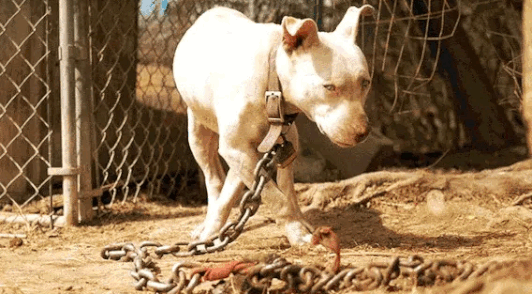
Description: If you can tell the dog’s breed, approximate age, size, and sex, record that information, too.
Dog’s health: The situation may be dire if the dog appears hunched over or if you can see protruding ribs, spine, and/or hipbones.
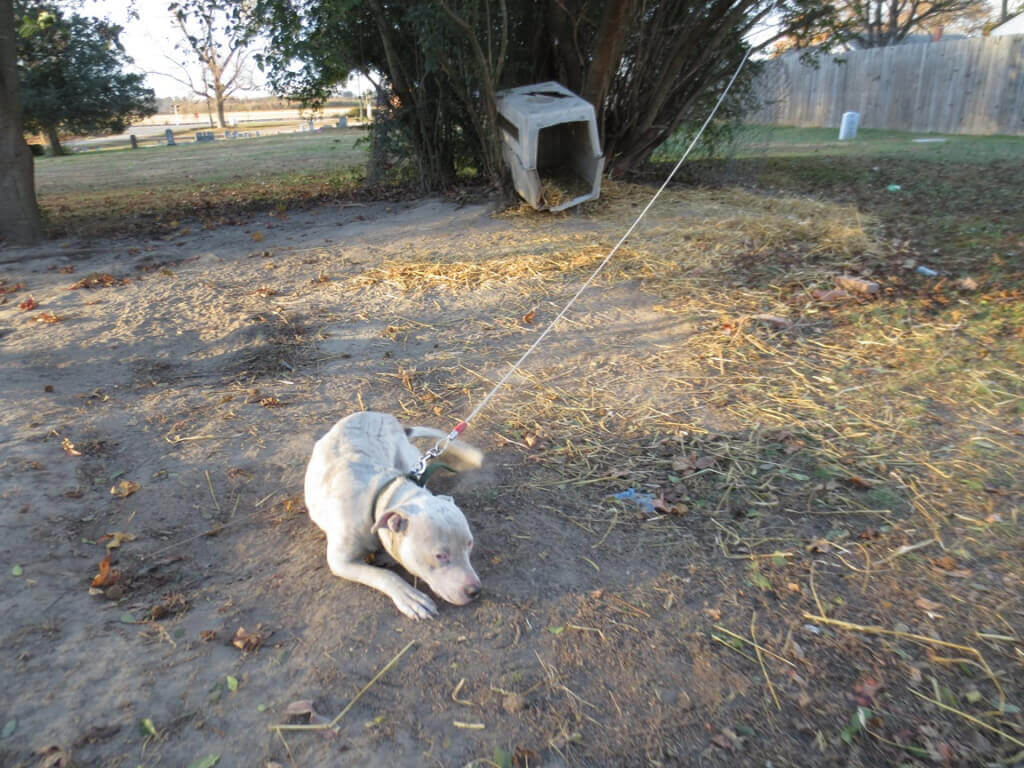
Shelter conditions: Note whether the dog is tethered, chained, penned, or running loose as well as whether there’s proper shelter within reach. An adequate shelter should have four walls, a raised floor, a solid roof, and an opening covered by a flap in the winter, and it must be waterproof. It should be small enough that the dog’s own body heat can help provide some warmth but large enough to allow for standing up and turning around. If the only accessible shelter is an airline carrier, a wire crate, a barrel, or something else that collects water, ices up, or lets the cold and wind in—or if the dog has no shelter at all—that is extremely serious.
2. Look for Food and Water
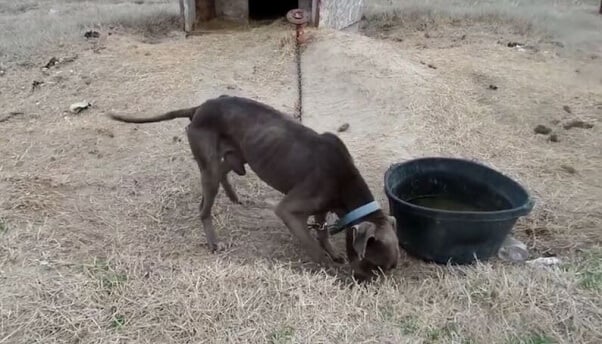
Try to see if there are any buckets or bowls of food and water. If the water is frozen or there’s none at all, take action, as described in the next steps. If the dog seems thin, look for any evidence of food.
3. Talk to the Owner
Knock on the door, and be very polite. Talk about the extreme temperature and say that you were wondering if the owner could let the dog, who appears to be suffering, in the house. If the owner is worried that the dog will make a mess or gives another excuse, suggest the laundry room, or bathroom—anywhere to get them out of the elements.
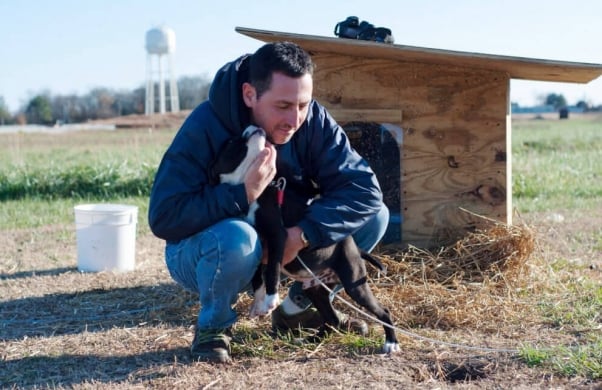
If the owner refuses to allow the dog inside, politely ask for permission to help. Ask if you can provide the dog with fresh water, food, and/or straw bedding. Emphasize that this will all be free of charge—you just love dogs and would like to help.
4. Call the Authorities
If the owner won’t let the dog inside or allow you to help, be polite, leave the property, and call local animal control. If the agency is unresponsive or closed, call the local police or sheriff. State clearly that the dog has no access to water or shelter and needs to be taken indoors as required by law.
Be calm, firm, polite, and precise, and mention the temperature. Carefully note the time that you called and the person you spoke with. If the dog has no shelter or is sick or injured, stay there until an officer arrives. Remember that your involvement could mean the difference between life and death.
5. Work to Get a Tethering Ban Passed
The best way to prevent dogs from suffering and dying on chains is to get a tethering ban passed. If chaining is legal in your area, please contact your local and state representatives and encourage them to get this cruel practice banned, as so many other jurisdictions have.
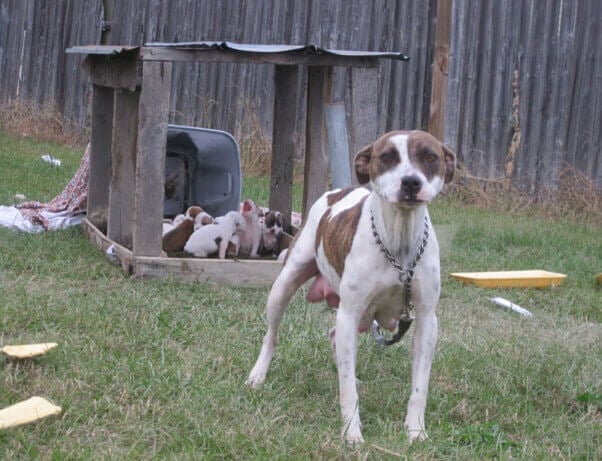
6. Let PETA Help You Help Dogs
If you want to get a chaining ban passed in your community or report a chained or neglected dog who needs help, e-mail Rachel Bellis.
*****
THINK YOU HAVE WHAT IT TAKES TO BE A PETA FIELDWORKER?
Then we’ve got good news: We’re hiring! We’re looking for diligent, hardworking, kind, professional, physically able individuals who care about animals—and who don’t mind getting their cargo pants a little (or a lot!) dirty. If this sounds like you, consider applying for our fieldworker opening. And if you’d like to do even more for dogs, consider sponsoring a doghouse so that one more neglected pup will at least have a safe place away from bad weather.

